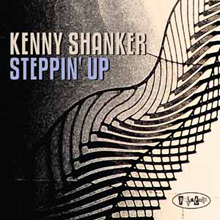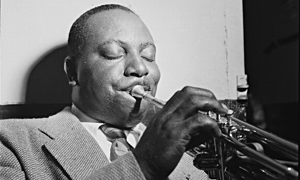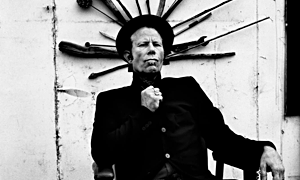Home » Jazz Articles » Book Review » Daniel Beaumont: Preachin’ the Blues - The Life and Time...
Daniel Beaumont: Preachin’ the Blues - The Life and Times of Son House
 Preachin' the Blues: The Life and Times of Son House
Preachin' the Blues: The Life and Times of Son House Daniel Beaumont
Hardback; 224 pages
ISBN: 0195395573
Oxford University Press
2011
Some of the new millennial writing about blues music, such as Elijah Wald's Escaping the Delta: Robert Johnson and the Invention of the Blues (Amistad, 2004) and Ted Gioia's Delta Blues (Norton, 2008), devote a great deal of energy addressing how the blues- scholarship approach of the 1950s and 1960s created the romantic genre of the "delta blues." Indeed the story of Nick Perls, Dick Waterman, Phil Spiro, Stephene Calt, John Fahey and Gayle Wardlow, and their individual and collective efforts to locate and record living pre-war blues artists, is a story in itself, inextricably linked to what would be marketed as "delta blues music."
One outcome of this scholarship has been the recasting of blues guitarist Robert Johnson (1911-1938) as something other than a seminal blues figure. The first 50 years of blues writing cast Johnson and his life as a "first principles" of the blues as an American folk music development. While passing attention has been given Charlie Patton, Son House, Skip James, and Tommy Johnson, a disproportionate amount of print has been devoted to Robert Johnson and the legion of myths associated with him. After careful consideration, Johnson can be re- cast as precocious youngster who learned the blues from the recordings those four principles and others much in the same way that Keith Richards and Eric Clapton learned the blues from Johnson's King of the Delta Blues Singers (Columbia, 1961) and King of the Delta Blues Singers II (Columbia, 1970). But rather then being seminal, Johnson can more accurately be described as inventively derivative, albeit with superior guitar and compositional skills. Johnson and his future biographers knew how to properly promote him, then and now.
In the wake of this scholarship comes University of Rochester historian Daniel Beaumont's biography of Eddie "Son" House (1902-1988), Preachin' the Blues: The Life and Times of Son House. House, Patton, James, Tommy Johnson and many others made "race" recordings a decade or more before Robert Johnson, and they may more rightly be considered "seminal" blues musicians, particularly the trio of Patton, House and James. Patton and James have already been the subjects of attentive biographies, Stephen Calt's King of the Delta Blues: The Life and Music of Charlie Patton (Rock Chapel Press, 1988) and I'd Rather Be The Devil: Skip James and the Blues (with Gayle Dean Wardlow) (Chicago Review Press, 1994). It is high time that Eddie "Son" House received the same academic attention.
Beaumont, an associate professor of Arabic Language and Literature, first became interested in House after having prepared a documentary on Rochester musician Joe Beard entitled So Much Truth. Joe Beard had been House's neighbor in Rochester for almost 30 years, providing Beaumont a pile of information about House during a time when little was previously known of him. Beaumont deftly incorporates this new information with interviews with other principle characters (Waterman, Calt, before his death, Wardlow and many others, all who provided information revealing House's life after leaving Mississippi, his ultimate rediscovery (though much has been written on this), and most importantly, filling in the history of what happened to House between 1970 and his death from laryngeal cancer in 1988.
Beaumont has successfully drawn together all of the writing (articles, books, liner notes, etc.) about House and sifted it into this straight-forward, unflinching biography. He left no stone unturned. He details House's 1930 Grafton recording sessions with Patton and Brown in vivid detail, and the Fisk University/Library of Congress recordings made by Alan Lomax in the early 1940s, ground already well covered. The welcome information was in House's endgame, a slow descent into alcoholic dementia and his ultimately silent, long good bye.
If there is any downside to Beaumont's account it is that he belabors the question of whether House and Charlie Patton actually played together, at the same time, or as two artists "on the ticket." Also consuming a good deal of text is the paradox existing between House's religious leanings and his profligate lifestyle as an itinerant blues musician. Beaumont contends that the existence of these contrasting "belief systems" is what gave rise to House's greatest compositions. This is perhaps overstated. That House behaved like a fallible and inconsistent human being (natural hazards) is hardly a surprise or unique. Humans are riddled with inconsistencies, that being the nature of the beast. Late in House's life, after his rediscovery, he often performed blues and sacred music together, coming to the ultimate realization that the sacred and profane are not mutually exclusive, but part of a continuum.
Tags
Son House
Book Reviews
C. Michael Bailey
United States
robert johnson
Skip James
Tommy Johnson
Eric Clapton
Joe Beard
Alan Lomax
PREVIOUS / NEXT
Support All About Jazz
 All About Jazz has been a pillar of jazz since 1995, championing it as an art form and, more importantly, supporting the musicians who make it. Our enduring commitment has made "AAJ" one of the most culturally important websites of its kind, read by hundreds of thousands of fans, musicians and industry figures every month.
All About Jazz has been a pillar of jazz since 1995, championing it as an art form and, more importantly, supporting the musicians who make it. Our enduring commitment has made "AAJ" one of the most culturally important websites of its kind, read by hundreds of thousands of fans, musicians and industry figures every month.

























